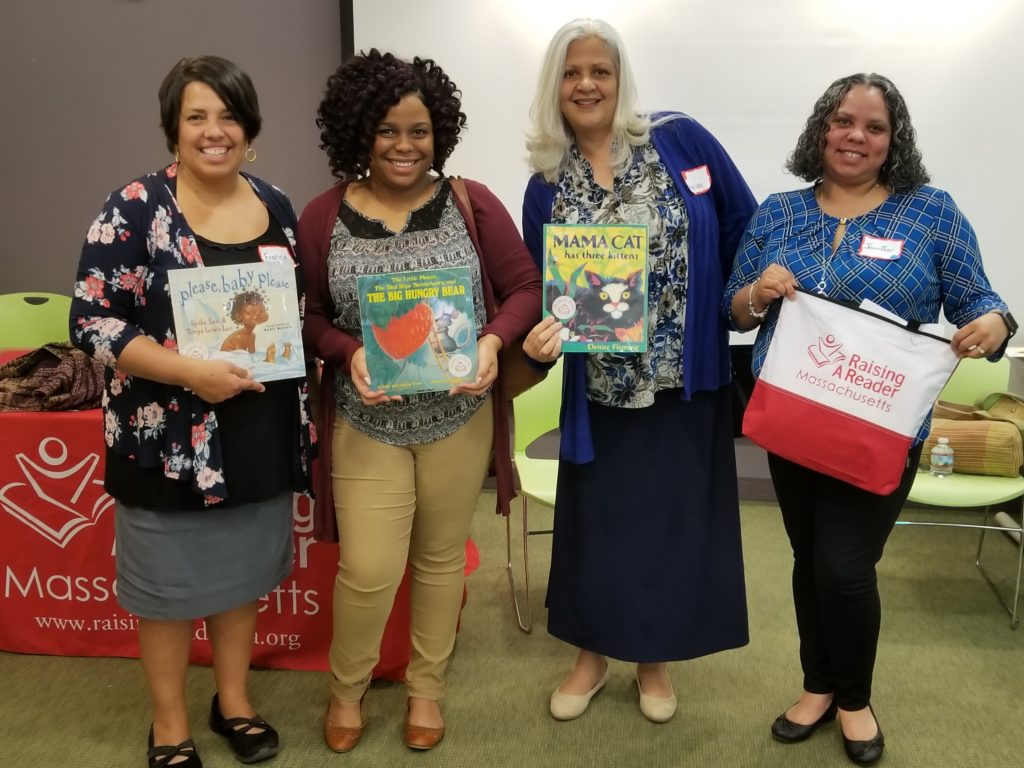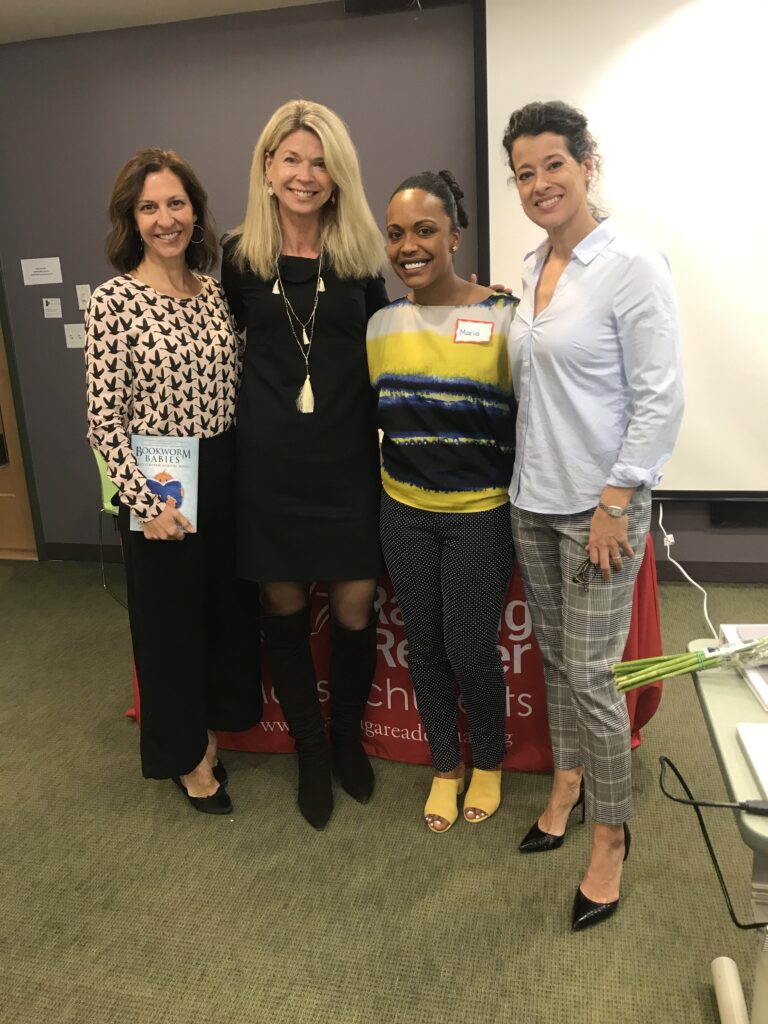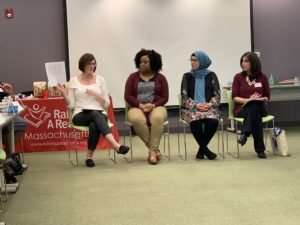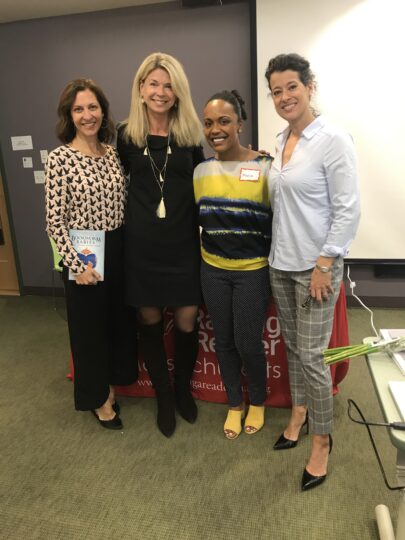Stronger partners, stronger community for a stronger future for Massachusetts children.
On March 27th, Raising A Reader MA (RAR-MA) hosted its second annual Program Partner Networking Event. The Raising A Reader MA team welcomed the staff at our program partners to join us for a day of knowledge sharing and networking.

Raising A Reader MA accesses all of its constituents through trusted community centers where families are already involved. We rely on our program partner staff to execute the Red Book Bag rotational library and coordinate the scheduling of parent workshops. In attendance were staff all the way from Healthy Families in Springfield, from Crossroads Family Center in East Boston, and everywhere in between.

This year’s event featured Dawn Ohanian Tringas and Kimberly Zimmer Aulenback, co-authors of Bookworm Babies, as speakers. They shared some of their conversational reading techniques, latest research in book sharing, and offered guidance about how to engage resistant or busy parents.
By sharing implementation strategies, talking through challenges that each partner or community faces, and connecting with other programs in the Raising A Reader MA network, the Raising A Reader MA community grows stronger.
Here are 12 key takeaways and learnings from the event:

- Parent engagement is not always easy and all of our partners face a lot of similar challenges. The chance to discuss this as a group is incredibly impactful.
- The children LOVE the Red Book Bags. It is theirs and they WANT to share with their caregivers…and even their siblings!
- Encourage the inclusion of grandparents, babysitters, cousins or friends of the child in the child’s book sharing. Anyone spending time with the children can and should be aware of the impact they can have.
- Reading at the dinner table is not only ok, it’s a good thing! Converse about stories and find ways to relate the stories to things in the child’s life. (Bookworm Model)
- Program partner staff and RAR-MA staff can offer to model and share strategies with families based on child’s needs when possible or necessary.
- Storytime should not be a pop quiz, but a serve and return conversation. It is okay to include wait time to allow the child to develop their thoughts. (Bookworm Model)
- Families who have participated in the program in previous years are a great resource for outreach and introducing the program to new families.
- Use or make “trial bags”, with gently used books or paper books as a way to develop child’s responsibility and to support families that are stressed about materials getting damaged.
- The more staff in your program that are aware of RAR-MA and of the literacy strategies, the easier it is to sustain programming without interruptions during staff turnovers and leadership transitions.
- Keep Trying! Every minute we are entertaining new ideas on how to reach families around literacy is key for a family to break out of the low literacy cycle.
- Follow your child’s lead. If they are simply not ready to sit still for quiet reading time, work with their energy and mood, talk about books you read, ask questions about what they are doing, discuss things you saw or did during the day, and try again later when they are more open to sharing a book to keep it a positive activity.
- Feel free to share examples of other parents who struggled and found a solution to find reading time. This may work for other parents who struggle or inspire a different creative solution.

